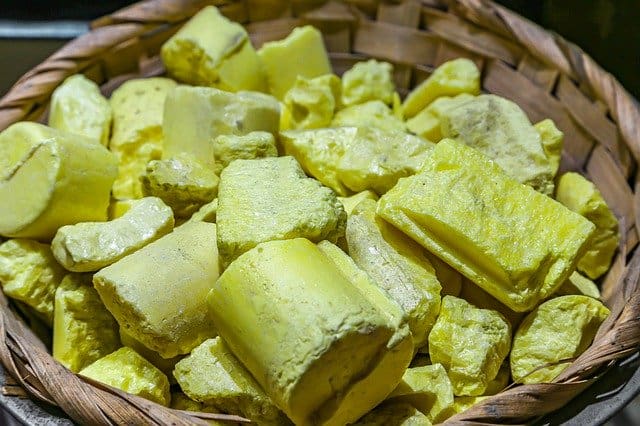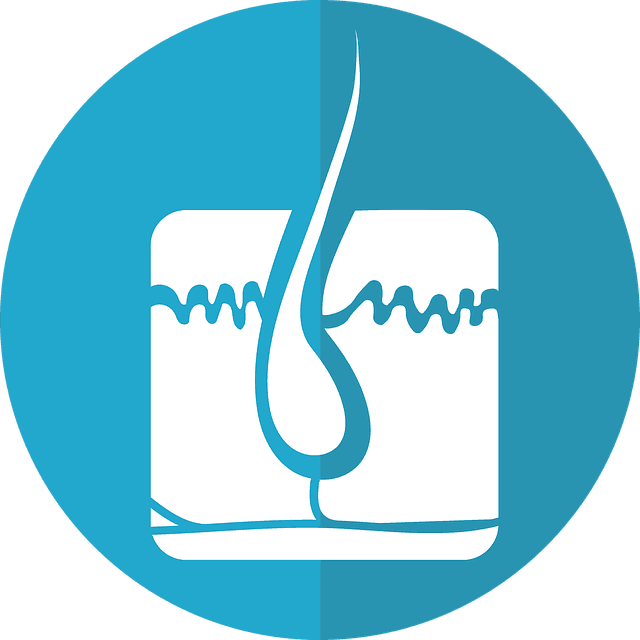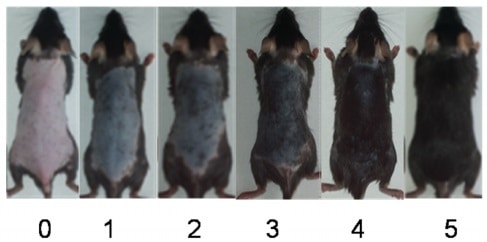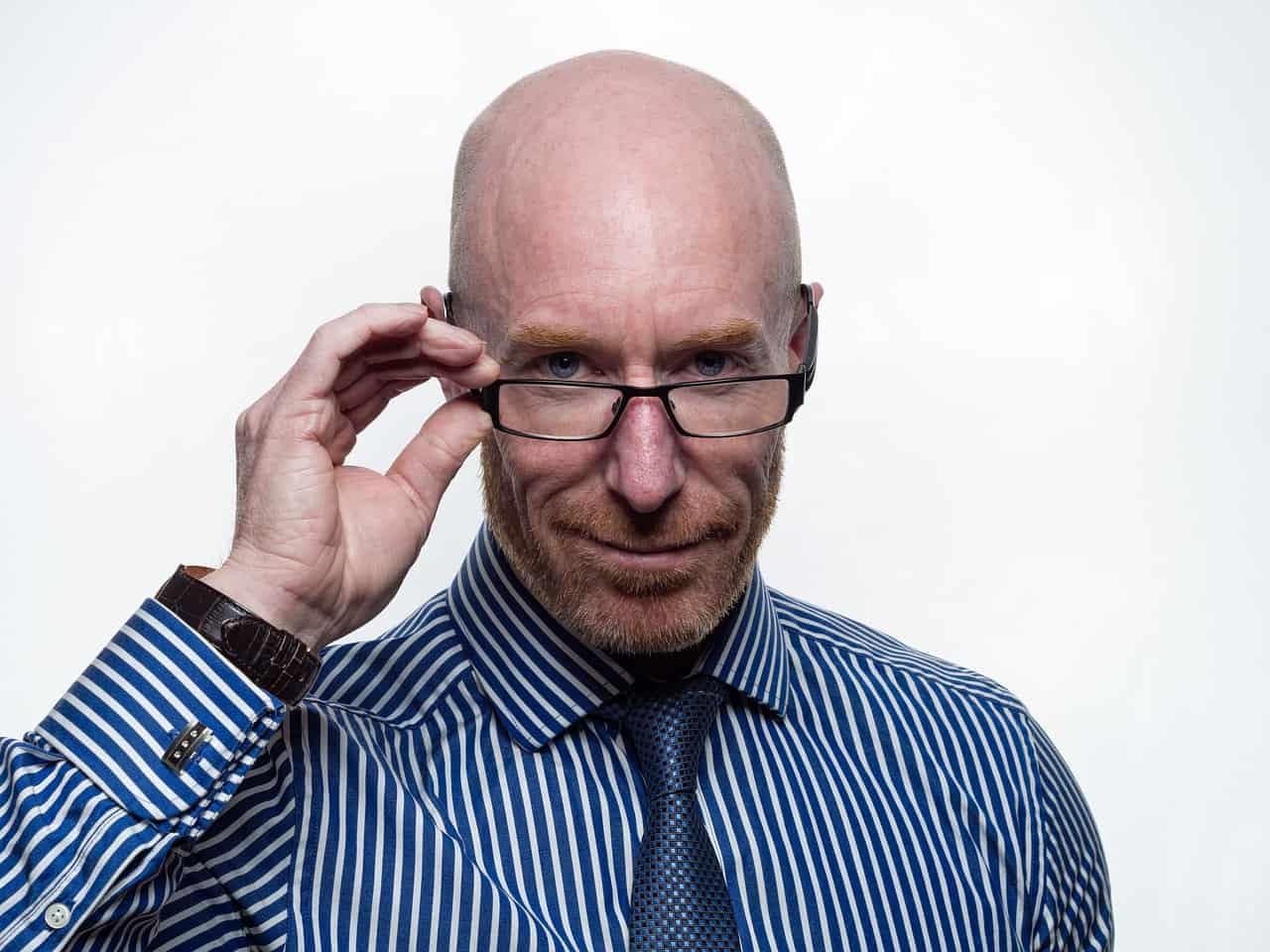If you look around the internet, you are sure to stumble upon people claiming that they used MSM for hair growth. Often, they claim that they took an MSM supplement, and their hair grew thicker and longer.
But can MSM really help to regrow hair naturally?
Here, at NatureMadeCures.com, we like to base our articles on scientific data and facts. So, without further delay, let’s look into the effect that MSM has on hair growth.
Contents
What is MSM?
 Methysulfonylmethane, or better known as MSM, is a sulfur supplement that is widely used in the health industry. There are many health benefits of MSM, ranging from joint health to improvements in skin and nails.
Methysulfonylmethane, or better known as MSM, is a sulfur supplement that is widely used in the health industry. There are many health benefits of MSM, ranging from joint health to improvements in skin and nails.
Sulfur is the third most abundant mineral in the human body and is essential to many different aspects of health. (1) Recently, modern farming techniques have depleted the levels of sulfur in the soil, which resulted in lower concentrations in plants and food that we consume. Also, the standard American diet has an inadequate amount of sulfur due to lower quality food choices. Both of these have resulted in a sulfur deficiency for many people.
Because of the lack of sulfur in people’s diets, many health professionals recommend taking a daily supplement. Two of the most popular sulfur supplements are DMSO and MSM.
MSM supplements are available for purchase in powder, cream, and capsule forms. They all have various uses. For the full list of uses of MSM, check out the article here.
How MSM Relates To Hair Production
 First off, sulfur is a mineral that is needed for hair growth. For a list of all the vitamins and minerals needed for hair growth, click here to read more.
First off, sulfur is a mineral that is needed for hair growth. For a list of all the vitamins and minerals needed for hair growth, click here to read more.
According to Duke University, at the base of the hair follicle is a bulb containing a bundle of cells. This is the part of the follicle that is responsible for hair production.
This bulb contains three layers of cells called the cuticle, cortex, and medulla. The cortex is responsible for forming the major part of the hair. It contains keratinocytes and melanocytes. The keratinocytes create keratin, which is a fibrous protein with many sulfur bonds that gives hair strength and structure. (2)
As you can see, a deficiency in sulfur would lead to a lack of keratin production, which could stop hair growth.
Secondly, MSM can also play a role in scalp health. Topically applied sulfur can help with scalp conditions like seborrheic dermatitis, dandruff, and flaking. These skin conditions are typically accompanied by itching and dryness of the skin, which are related to hair loss.
By targeting and improving these skin conditions, you create an environment where hair growth can occur naturally.
Scientific Studies on MSM and Hair Growth
Although MSM could potentially help promote hair growth in theory, unfortunately, there isn’t a lot of scientific research to back it up.
There only exists one widely available clinical study on the topic.
In the study, which was published in 2009, researchers examined the effect of MSM in combination with magnesium ascorbyl phosphate(MAP). They put an aqueous solution of them on the back of hairless mice for 20 days. They performed the test with various solutions. Some of these solutions contained MAP only, while others contained various concentrations of MSM.
 At the end of the 20 days, researchers observed the results. Hair growth in the group treated with the aqueous solution containing MAP 7.5% and MSM 10% was comparable to or better than the result in the group treated with minoxidil 5% solution.
At the end of the 20 days, researchers observed the results. Hair growth in the group treated with the aqueous solution containing MAP 7.5% and MSM 10% was comparable to or better than the result in the group treated with minoxidil 5% solution.So, as a result of the study, researchers concluded that the topical application of MAP in conjunction with MSM could be a treatment of alopecia.
Is MSM Effective At Treating Hair Loss?
 The honest answer is, as of right now, we do not know for sure if it helps with hair growth. Although the scientific study had a positive outcome, there are some things to consider.
The honest answer is, as of right now, we do not know for sure if it helps with hair growth. Although the scientific study had a positive outcome, there are some things to consider.
First off, scientists performed the study on mice. Although sometimes the performance of a trial on mice translates well to humans, other times it does not. So, to give a more definitive answer, we would need more hair growth studies to be performed on men and women.
Secondly, the MSM product in the study was combined with MAP in an aqueous solution and applied topically. This raises many questions, such as:
Would a topical solution of MSM alone have similar results?
Does supplementing with oral MSM have any impact on hair growth?
Unfortunately, we do not know those answers. In theory, if a person’s hair loss is related to a sulfur deficiency, it could possibly help. But as of now, it is just a theory.
Conclusion
Until there is more reliable data, it probably isn’t smart to completely put your hopes on MSM to regrow healthy hair. On the other hand, there are many situations where using MSM to thicken your hair are warranted.
First off, if you have a scalp condition like dandruff or chronic itching, applying a topical MSM cream may help improve the situation.
Secondly, some of the best hair growth oils contain MSM. When using it in conjunction with other ingredients, you increase the chance of fixing the problem. That is another reason that it is an ingredient in some hair growth supplements.
Finally, as mentioned previously, MSM supplements have a ton of health benefits and very few side effects. Some people even call it the fountain of youth for its anti-aging benefits. So, you may want to consider adding a good form of sulfur supplement like MSM powder to your diet regardless of the scientific data in regards to hair loss.
References:
(1) Sulfur: Uses, Side Effects, Interactions, Dosage, and Warning
(2) Content Background: The anatomy and composition of hair
(3) Shanmugam, Srinivasan & Baskaran, Rengarajan & Nagayya-Sriraman, Santhoshkumar & Yong, Chul-Soon & Choi, Han-Gon & Woo, Jong-Soo & Yoo, Bong-Kyu. (2009). The Effect of Methylsulfonylmethane on Hair Growth. Biomolecules & Therapeutics – BIOMOL THER. 17. 241-248. 10.4062/biomolther.2009.17.3.241.
